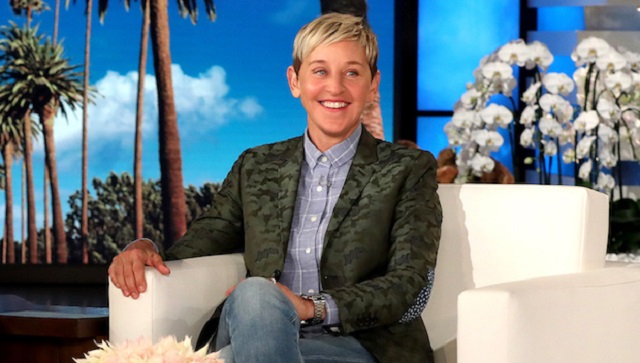When Ellen DeGeneres returned from a summer hiatus to open the 18th season of her daytime talk show in September, she came armed with an
apology
. “I learned that things happen here that never should have happened,” she said. “I take that very seriously. And I want to say I am so sorry to the people who were affected.” Those remarks came in the wake of reports of workplace misconduct at The Ellen DeGeneres Show. Viewers tuned in for the apology: This year’s season opener had the highest ratings for an Ellen premiere in four years. And then they tuned out. Ellen has lost more than 1 million viewers since September, according to the research firm Nielsen, averaging 1.5 million viewers over the past six months, down from 2.6 million in the same period last year. The decline has come at a time when workplace behaviour, in Hollywood and elsewhere, has come under intense scrutiny against a backdrop of protest and social change. It is a startling setback for one of daytime television’s most successful franchises and for DeGeneres, who was at the forefront of an earlier cultural shift when, as the star of a prime-time network sitcom in the 1990s, she announced that she is gay. The show’s loss of more than 1 million viewers translates to a 43 percent decline, representing a steeper drop than any of its competitors. This TV season, Ellen the winner of dozens of Emmys since its start in 2003, is no longer in the same league as traditional rivals like Dr Phil (2.5 million) and Live: With Kelly and Ryan (2.7 million). Now it finds itself uncomfortably close to shows hosted by Maury Povich (1.4 million), Kelly Clarkson (1.3 million), Rachael Ray (1.2 million), Tamron Hall (1.1 million) and Jerry Springer’s former security guard Steve Wilkos (1.1 million). The loss of viewers includes a 38 percent decline in her core audience, adult women under 54, according to Nielsen. And it appears to have put a dent in the show’s ad revenue. From September to January of the 2019-20 season, Ellen brought in $131 million from advertisers, according to the research firm Kantar. That has fallen to $105 million for the same period in 2020-21, a drop of about 20 percent.
“The reason the incident with the producers was such a difficult and perilous moment is it’s the first time where something surfaced to indicate that a family — Ellen’s own professional family — was dysfunctional,” he continued.
DeGeneres referred to her motto in her on-air apology. “Being known as the Be Kind Lady is a tricky position to be in,” she said. “So let me give you some advice. If anyone is thinking of changing their title or giving yourself a nickname, do not go with the Be Kind Lady.” She added that she was indeed the cheerful person she appeared to be on television, but was also someone who experienced moments of sadness, anxiety and impatience. In addition to her daytime show, DeGeneres is also a prime-time star for NBC — and her show for that network, Ellen’s Game of Games, also a Warner production, has lost 32 percent of its viewers this season, as well as 35 percent in the adult demographic important to advertisers. Even with the complications affecting all talk shows during the pandemic, Ellen, with its loss of 43 percent of its audience, has suffered a steeper decline than its rivals. Dr Phil is down 22 percent, and The Kelly Clarkson Show has lost 26 percent of its viewers. Kelly Ripa and Ryan Seacrest’s show has lost just 3 percent, and Tamron Hall is down 9 percent. DeGeneres beat the odds to make her show a success. There is a television graveyard filled with the comics, actors, anchors and reality stars who have taken a crack at syndicated talk shows only to be yanked off the air because of low ratings. And when Ellen premiered, she also had to overcome the hesitancy of affiliate managers who thought an openly gay person could not connect with the women who make up most of the daytime audience. Her quick wit and approachable manner earned her millions of fans and ultimately a plum late afternoon slot in most markets. As recently as a few years ago, the show was drawing roughly 3 million viewers an episode. As DeGeneres fights through a loss in popularity, she has turned to celebrity friends to help her make the case that there is not much difference between the on-camera Ellen and the real Ellen. When Michelle Obama was a virtual guest last week, she spoke warmly about the time she went to DeGeneres’ house and they played a piano duet together. A video clip of the pair at the piano was shown. Another recent guest, Jennifer Garner, also appearing remotely, raced to her hotel room balcony at the host’s request to tell passersby how much she adored DeGeneres. “I love her!” Garner shouted. “She’s kind! She’s a humanitarian! She loves animals!” John Koblin c.2021 The New York Times Company
)